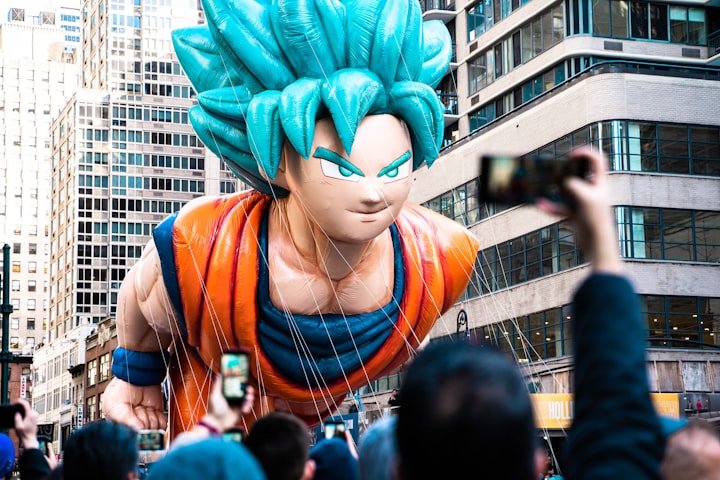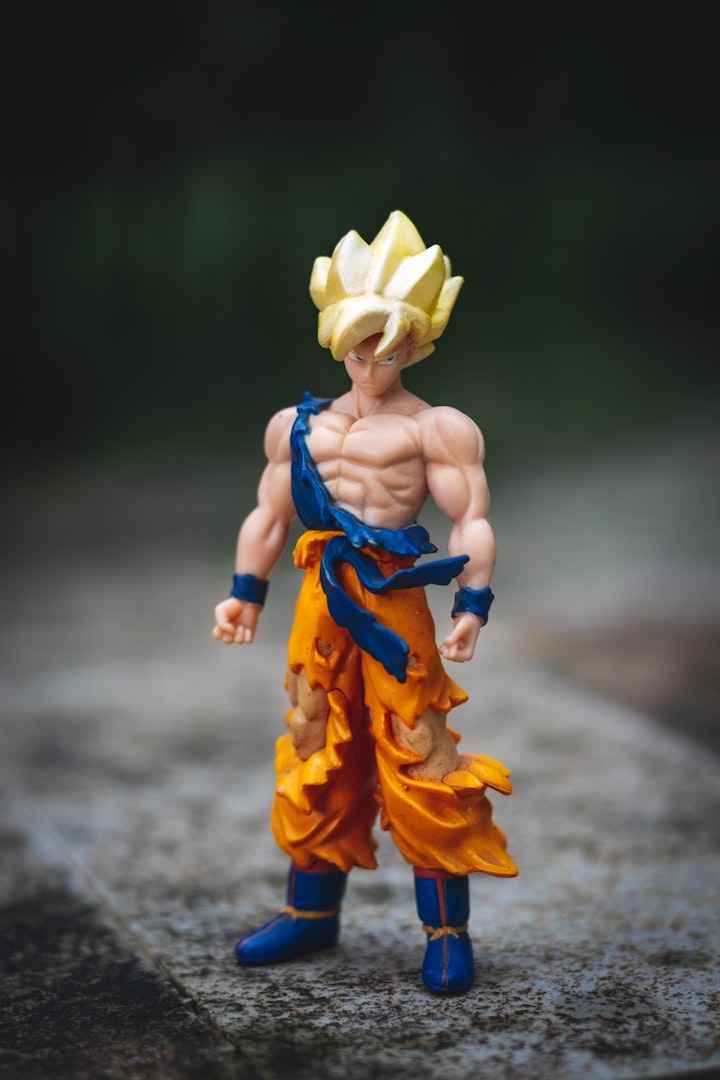
Son Goku is a fictional character for the majority of people who have ever read a comic book or watched an episode of the Dragon Ball anime. However, few people are aware that a small number of Dragon Ball series fans are so enamored with the character of Goku that they view him as an incarnation of God; thus, Gokuism was founded.
Dragon Ball is a popular manga and anime series developed in 1984 by Akira Toriyama that follows Son Goku's adventures (the main protagonist). The series recounts the martial arts training exploits of the protagonist, Son Goku, from childhood to adulthood. He spends his boyhood far from society until he encounters Bulma, who convinces him to accompany her in her search for the seven Dragon Balls, which are used to call Shenron (Shen Long), a dragon god who can grant any wish.
On his trip, Goku finds a number of new allies, starts a family, learns about his extraterrestrial ancestry, and faces a vast array of adversaries, many of whom are also after the Dragon Balls.
What exactly is Gokuism?

Source: By TeoMax on Pixabay.comGokuism is the concept that the Dragon Ball premise offers stories of God and a moral code for living. According to The Dao of Dragon Ball, "Gokuism is the concept that the ideals of Dragon Ball provide a moral compass for one's life, and that Goku is an ideal role model and moral person."
Gokuism's adherents believe that Son Goku is essentially Jesus Christ. In fact, some supporters of this ideology hold that Goku is greater and more perfect than Jesus and argue as such. According to them, Goku died twice (and came back to life) to save humanity, whereas Jesus died only once to save his followers. As a result, Goku is seen as a religious role model by adherents of Gokuism. Internet forum user ramssuperbowl99 clearly seems to hold this view.

"Jesus died once to save humanity; guilt trips you about it forever." "Goku: Died twice to save humanity; isn't a little bitch about it." "I know who I'm worshiping."
Ramssuperbowl99
Throughout the Dragon Ball series, Goku experiences extraordinary obstacles that he overcomes with extraordinary drive, perseverance, and faith in the face of a tremendous amount of suffering. Consequently, he was able to defeat his opponent.
Derek Padula, a Dragon Ball aficionado and author of "Dragon Ball Culture" and founder of "The Dao of Dragon Ball," explained this. However, he emphasizes that he is not the creator of Gokuism, and the originator of this ideology remains unknown.
According to Derek once more, Gokuism most likely originated from his writing in the book Dragon Soul: Fans claimed that Dragon Ball, Son Goku, and other characters (Vegeta, Gohan, and Piccolo) inspired those living under struggle to be better people and strive for a better existence. Dragon Ball inspires them to pursue their aspirations with courage, allowing them to become artists, composers, painters, philosophers, etc. People began to use Dragon Ball as a model for their lives, and this philosophy eventually evolved into what we now call Gokuism.
Dragon Ball itself has an intriguing religious connection. Goku is based on the old mythology of the Monkey King (Sun Wukong). The tale has a 5,000-year history in Chinese culture and is mostly spiritual in nature. This notion is connected to the justification of Gokuism's teachings.
Eventually, aspects of both Buddhism and Taoism were blended to create Gokuism; eventually, aspects of Jackie Chan and Bruce Lee were added to create their own martial arts epic. When regular people watch Goku, they may not understand it, yet these are the life ideals they must adopt.
Controversy regarding the Gokuism belief system

Photo by Carson Masterson on UnsplashAlthough there is no church or religious center for Gokuists, a small number of South American Gokuists perform occasional processions in his honor. Padula notes that South Americans occasionally organize Goku-themed marches. Such marches are unpopular with local Christian groups, who believe Gokuism is attempting to compete with Christianity. Christians in South America view Dragon Ball as having satanic aspects since it alienates people from the Christian religion.
Among the Gokuist beliefs are:
- Believe that after death, man will confront Monarch Yemma (the king of the ogres who judge the dead) and be offered a decision between heaven and hell that is deserving.
- Believe that animals such as Mr. Popo (an assistant deity who serves as the World's Guardian's attendant) and Kami (the former Earth's Guardian) are assigned by God to oversee the earth.
- They believe that in order to meet the deity, one must cross the snake bridge (Snake Way). Snake Way, or Serpent Road, is a long, narrow, and winding path located in the Other World, above Hell, that connects the palace of King Yemma to the planet of King Kai. If you fall off this bridge, you will be damned forever.
- And most lately, they have come to believe in the existence of a galaxy or another Milky Way where other beings and gods care for their own colonies.
Padula, on the other hand, points out that Gokuism is not about being a Goku, because Goku is a fictional character. Gokuism entails maximizing your potential in the same manner as Goku.
As Padula states, "There are millions of people who have been influenced by Dragon Ball - not only as entertainment, but as a show that had a genuine impact on their lives." That impact was positive enough that they took it into their hearts and used it as a moral compass."
What would Goku have to say about this? and what is your opinion?






Comments
There are no comments for this story
Be the first to respond and start the conversation.